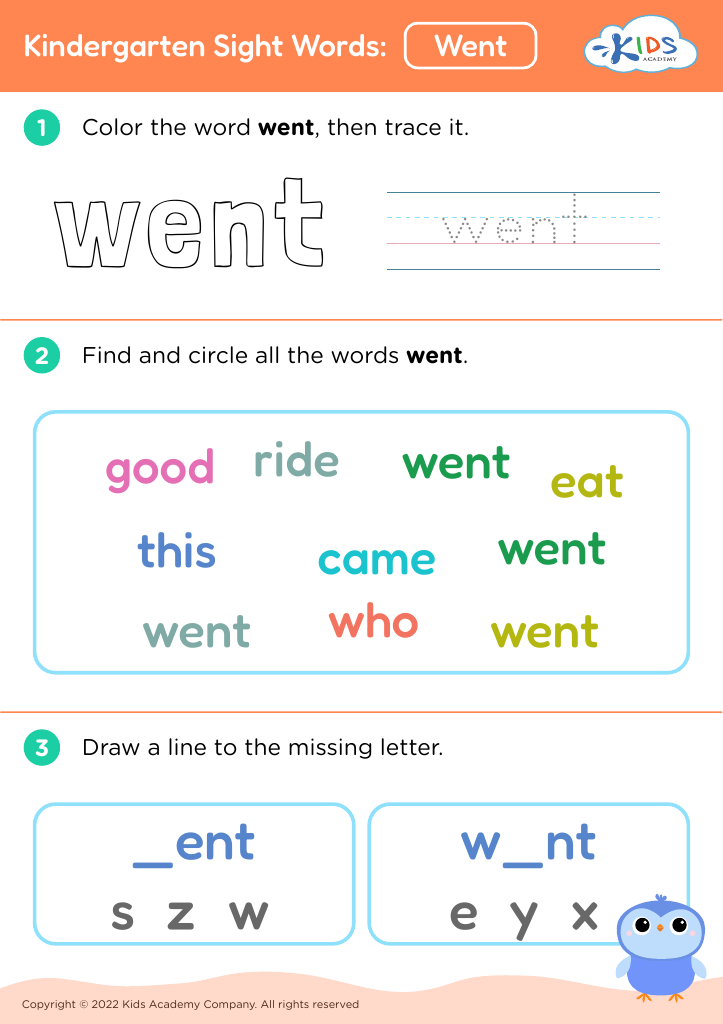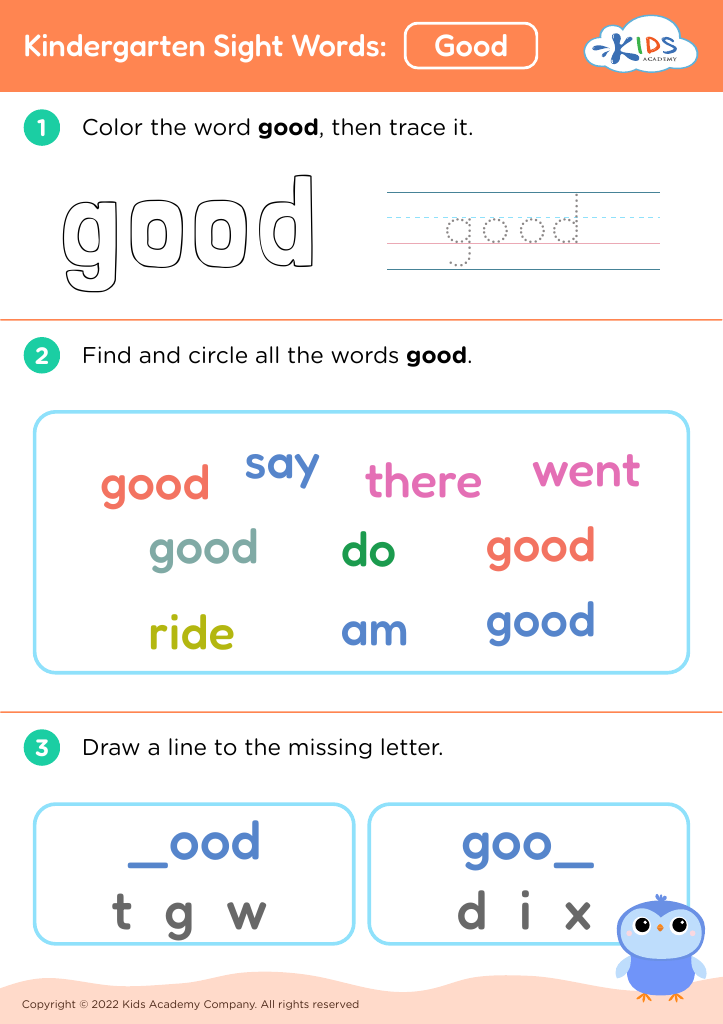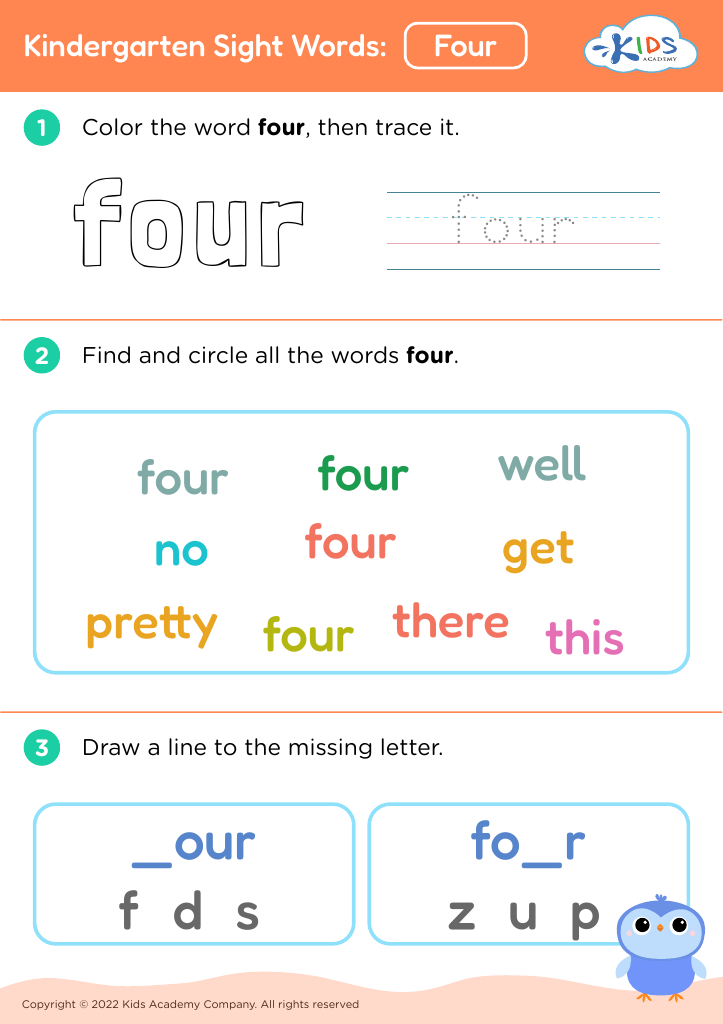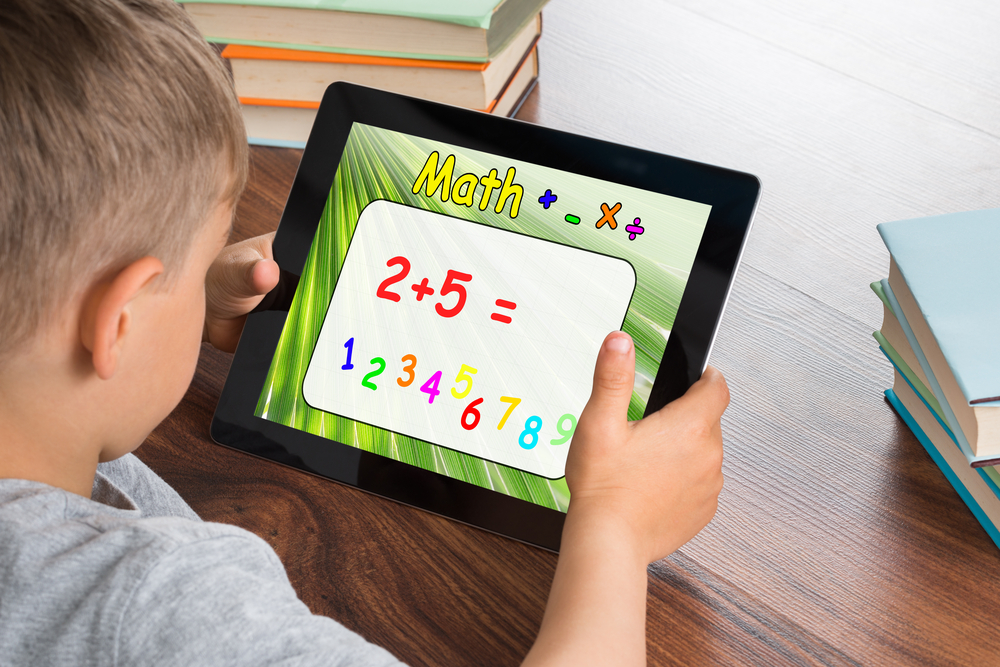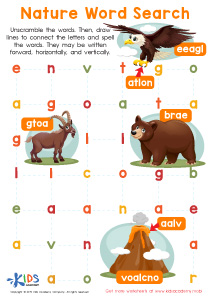Addition Practice Sight Words Worksheets for Ages 4-5
3 filtered results
-
From - To
Enhance early math and reading skills with our "Addition Practice Sight Words Worksheets for Ages 4-5." These engaging, educator-designed printables combine essential sight words and basic addition practice, fostering confidence and foundational knowledge in young learners. Perfect for at-home learning or classroom reinforcement, each worksheet captivates with vibrant visuals and fun exercises tailored to preschoolers and kindergartners. As children explore these interactive activities, they build crucial skills that pave the way for future academic success. Equip your child with the tools they need to excel, while making learning an enjoyable, rewarding experience. Discover the perfect blend of education and play today!
Addition Practice Sight Words for ages 4-5 are foundational elements that support early childhood education. Parents and teachers should care about these because they address critical aspects of early learning—numeracy and literacy.
Firstly, developing addition skills at this age builds a strong mathematical foundation. Young children who practice addition gain confidence and familiarity with numbers. This early exposure helps them understand basic mathematical concepts and operations, setting the stage for more complex problem-solving skills in the future. As children learn to add, they also enhance their cognitive abilities and logical reasoning.
Secondly, sight words are high-frequency words that young readers are encouraged to recognize without hesitation. Mastery of these words helps in developing reading fluency, comprehension, and overall confidence. When children can quickly recognize common words, they can focus more on understanding the text rather than decoding each individual word.
By merging addition practice with sight word recognition, caregivers foster a well-rounded educational experience that nurtures both numerical and literacy skills simultaneously. Engaging children in these activities also encourages a love for learning, promotes a growth mindset, and enhances overall school readiness. Therefore, attention to both addition and sight words at an early age is a strategic investment in a child's long-term academic and personal growth.
